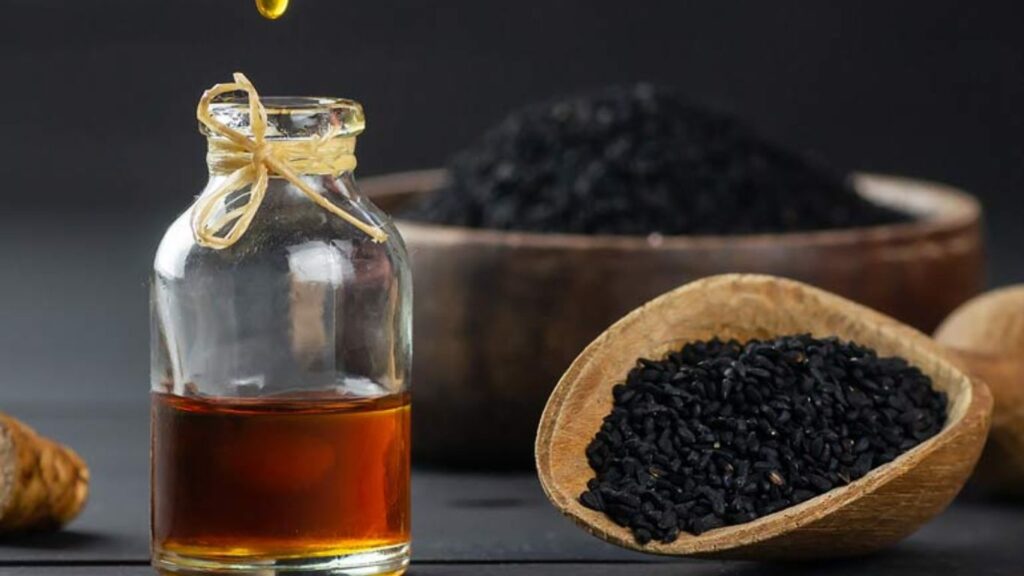Black seed oil, extracted from the seeds of the Nigella sativa plant, boasts a rich tapestry of history and tradition, dating back thousands of years. Revered across various cultures for its therapeutic properties, it has been used in ancient Egyptian, Greek, and Middle Eastern medicinal practices. Known also as black cumin seed oil, this natural remedy has garnered attention for its wide-ranging health benefits, fueling a resurgence in its popularity among health enthusiasts and researchers alike. This blog aims to delve into the multifaceted advantages of black seed oil, stretching from its reputed ability to foster hair growth to its potential in enhancing heart health. By bridging historical wisdom with contemporary scientific inquiry, we embark on a journey to uncover how this age-old elixir can contribute to modern health and wellness paradigms.
Exploring the Multi-Faceted Benefits of Black Seed Oil
What is Black Seed Oil?
Black seed oil originates from the seeds of the Nigella sativa plant, a small flowering shrub native to Eastern Europe, the Middle East, and Western Asia. This plant’s seeds have been used in traditional medicine for millennia, valued for their healing properties. The oil extracted from these seeds is rich in a variety of compounds that contribute to its health benefits. The primary active component is thymoquinone, known for its potent antioxidant and anti-inflammatory effects. Alongside thymoquinone, black seed oil contains fatty acids, including linoleic acid and oleic acid, which are essential for maintaining health. Its nutritional profile is further enhanced by the presence of vitamins, minerals, and other phytochemicals that support the body’s natural defense systems, promote heart health, and foster overall well-being. This complex composition makes black seed oil a subject of interest for its potential therapeutic applications and benefits.
Hair Growth Benefits
Black seed oil is celebrated for its remarkable ability to promote hair growth, thanks to its nourishing effects on the scalp and hair follicles. Rich in fatty acids, particularly linoleic and oleic acids, it provides the scalp with essential nutrients that strengthen hair roots and improve hair health. The oil’s anti-inflammatory and antimicrobial properties help to soothe scalp conditions that can hinder hair growth, such as dandruff and eczema, by creating a healthier environment for hair follicles to thrive.
Scientific evidence supports the efficacy of black seed oil in enhancing hair health and growth. A study published in the “Journal of Dermatology & Dermatologic Surgery” found that a topical application of black seed oil led to a reduction in hair fall and increased hair density in participants. This is attributed to its active compound, thymoquinone, which has been shown to promote hair growth by mitigating inflammation and combating oxidative stress within hair follicles.
These findings underscore black seed oil’s potential as a natural remedy for promoting hair growth. By directly addressing scalp health and providing vital nutrients to hair follicles, black seed oil emerges as a compelling option for individuals seeking to improve their hair’s health and appearance.

Heart Health Advantages
Black seed oil plays a significant role in supporting heart health, primarily through its effects on cholesterol levels and blood pressure. Its bioactive compounds, especially thymoquinone, exhibit potent antioxidant and anti-inflammatory properties that are beneficial for cardiovascular health. These properties help in reducing levels of LDL (bad) cholesterol while potentially increasing HDL (good) cholesterol, thereby improving the lipid profile and reducing the risk of atherosclerosis.
Moreover, black seed oil has been found to possess antihypertensive effects, contributing to lower blood pressure levels. A study published in the “Journal of Hypertension” demonstrated that supplementation with black seed oil significantly reduced both systolic and diastolic blood pressure in adults with mild hypertension, without notable side effects. This effect is attributed to the oil’s ability to relax blood vessels, improve endothelial function, and reduce inflammation, all of which are crucial for maintaining optimal blood pressure levels.
These research findings highlight black seed oil’s potential as a natural supplement for enhancing heart health. By addressing two key risk factors for cardiovascular disease—high cholesterol and elevated blood pressure—black seed oil offers a promising complementary approach to traditional heart disease prevention and management strategies.
Additional Health Benefits
Black seed oil is renowned for its anti-inflammatory and antioxidant properties, which play a crucial role in promoting overall health. The presence of thymoquinone, a potent compound within the oil, is chiefly responsible for these effects. It helps mitigate inflammation in the body, which is a root cause of numerous chronic conditions, including arthritis, asthma, and cardiovascular diseases. Antioxidant properties of black seed oil protect cells from damage caused by free radicals, reducing the risk of chronic diseases and aging.
The immune-boosting capabilities of black seed oil are notable. It enhances the body’s defense mechanisms by supporting the production of white blood cells, vital for fighting off infections. Research published in the “Journal of Ethnopharmacology” highlights its immunomodulatory effects, which help in maintaining a balanced immune response, thereby preventing overreaction that could lead to autoimmune disorders.
For skin health, black seed oil offers a multitude of benefits. Its anti-inflammatory properties help in treating conditions like eczema, acne, and psoriasis. Additionally, the oil’s antibacterial and antifungal traits combat skin infections, promoting a healthy and clear complexion. Studies have shown that topical application of black seed oil can improve skin moisture and texture, indicating its potential as a natural skincare ingredient.
In managing diabetes, black seed oil has shown promise by aiding in blood sugar regulation. Its components can enhance insulin sensitivity, leading to better glucose control. A study in the “Journal of Endocrinology and Metabolism” found that subjects with type 2 diabetes who consumed black seed oil experienced significant reductions in fasting blood glucose levels and improved lipid profiles, suggesting its beneficial role in diabetes management.
Together, these findings underscore black seed oil’s versatile health benefits, from bolstering immune function and skin health to managing chronic conditions like diabetes, showcasing its potential as a supplementary natural remedy in various health regimes.

Usage and Dosage Recommendations
To harness the health benefits of black seed oil effectively, it can be consumed orally or applied topically, depending on the intended use. For general health, a common dosage is one to two teaspoons daily, either taken directly or mixed into beverages or foods like smoothies or salads. For topical applications, such as for skin conditions or hair growth, it can be applied directly to the affected area. However, due to variations in individual health conditions and possible interactions with medications, it’s crucial to consult a healthcare provider before incorporating black seed oil into your regimen. This ensures personalized advice tailored to your specific health needs and safety.
Precautions and Side Effects
While black seed oil is generally considered safe for most people, it’s important to be aware of possible side effects and exercise moderation. Some individuals may experience allergic reactions, digestive issues such as bloating or stomach discomfort, or topical irritation when applied to the skin. Due to its potential to lower blood pressure and blood sugar levels, those with conditions related to blood pressure or diabetes should use it cautiously. Pregnant and breastfeeding women are advised to avoid it due to insufficient research on its effects. Always start with a small dose to assess your body’s response and consult a healthcare provider to ensure its safe use.
Conclusion
Black seed oil presents a treasure trove of health benefits, from fostering robust hair growth to promoting heart health. Its anti-inflammatory, antioxidant, and immune-boosting properties underscore its versatility as a natural remedy. While it offers potential benefits for skin health and diabetes management, it’s essential to approach its use with informed caution and moderation. As we navigate the landscape of natural health solutions, black seed oil stands out for its historical significance and contemporary relevance. Consulting with a healthcare provider before incorporating it into your health regimen ensures a safe and personalized approach to harnessing its multifaceted benefits.
Also read: Parsley: More Than Just a Garnish – Exploring its Nutritional Value and Health Properties
